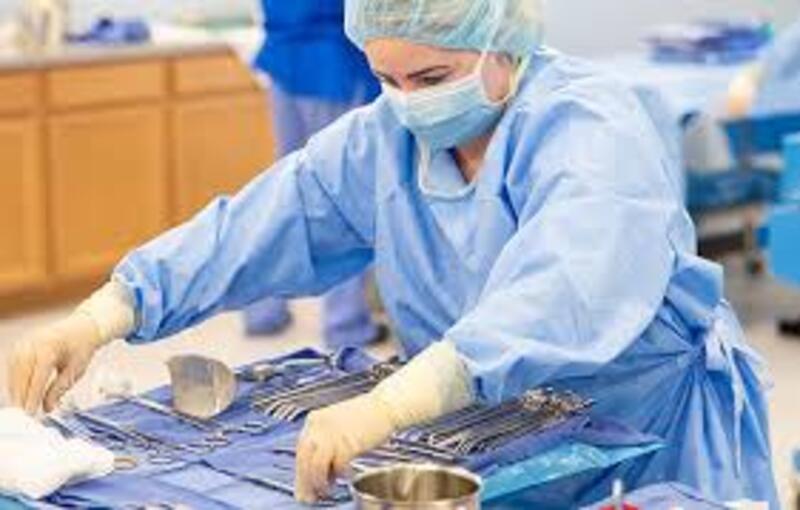How to Become a Sterile Processing Technician
In the healthcare sector, every role plays a crucial part in ensuring the smooth functioning of medical procedures and the safety of patients. One such indispensable role is that of a Sterile Processing Technician. Often working behind the scenes, sterile processing technicians are the backbone of hospital operations, ensuring that surgical instruments and equipment are thoroughly cleaned, sterilized, and ready for use. In this article, we will explore the responsibilities, required skills, career prospects, and importance of this critical profession.
Who is a Sterile Processing Technician?
A Sterile Processing Technician (SPT) is a healthcare professional responsible for the decontamination, cleaning, and sterilization of surgical tools and medical instruments. These professionals ensure that the equipment used in patient care is safe, sterile, and in proper working condition. Their work is essential to preventing infections and maintaining a safe environment in hospitals, surgical centers, and other healthcare facilities.
The role requires meticulous attention to detail, technical knowledge of sterilization procedures, and adherence to strict healthcare standards. By fulfilling these responsibilities, sterile processing technicians contribute significantly to the overall safety and success of medical procedures.
Key Responsibilities of a Sterile Processing Technician
Sterile processing technicians perform a wide range of duties that are essential to healthcare operations. Some of their primary responsibilities include:
- Decontamination
After use, medical instruments must be thoroughly cleaned to remove biological material and contaminants. Sterile processing technicians use specialized cleaning agents and equipment to decontaminate these tools. - Sterilization
Once cleaned, instruments undergo sterilization to eliminate any remaining pathogens. This may involve using autoclaves, chemical disinfectants, or other sterilization technologies. - Inspection and Assembly
Technicians carefully inspect instruments for damage or defects before assembling surgical trays. This step ensures that all tools are functional and ready for use. - Inventory Management
Maintaining an adequate supply of sterile instruments is vital. Sterile processing technicians track inventory, order supplies, and manage equipment to avoid shortages or disruptions. - Documentation
Keeping detailed records of sterilization processes and equipment maintenance is crucial for compliance with healthcare regulations.
Qualifications and Skills Required
Becoming a sterile processing technician typically requires a combination of education, certification, and practical training. Below are the key qualifications and skills necessary for the role:
1. Education
Most employers require a high school diploma or equivalent. Some candidates may pursue specialized training programs in sterile processing, often offered by community colleges or vocational schools.
2. Certification
Although not always mandatory, certification can significantly enhance job prospects. Certifications such as the Certified Registered Central Service Technician (CRCST) offered by the International Association of Healthcare Central Service Materiel Management (IAHCSMM) are widely recognized.
3. Technical Skills
Sterile processing technicians must have a strong understanding of sterilization techniques, infection control practices, and the operation of specialized cleaning equipment.
4. Attention to Detail
In this role, even the smallest oversight can have serious consequences. Precision and thoroughness are critical to ensuring patient safety.
5. Physical Stamina
The job often involves standing for long hours, lifting heavy equipment, and working in high-pressure environments.
Career Prospects and Growth
The demand for Sterile Processing Technicians is steadily increasing due to the growing emphasis on infection control and patient safety in healthcare. According to the U.S. Bureau of Labor Statistics, employment in this field is projected to grow in the coming years, making it a stable and rewarding career choice.
1. Job Opportunities
Sterile processing technicians can work in a variety of healthcare settings, including:
- Hospitals
- Outpatient surgical centers
- Dental offices
- Medical device manufacturing companies
2. Career Advancement
With experience and additional certifications, technicians can advance to supervisory roles or specialize in areas such as surgical instrument repair or equipment testing.
3. Salary Potential
The median annual salary for sterile processing technicians ranges from $35,000 to $55,000, depending on factors such as location, experience, and workplace setting.
Importance of Sterile Processing in Healthcare
The role of a sterile processing technician extends far beyond cleaning instruments. Their work is a cornerstone of infection prevention, ensuring that healthcare facilities maintain the highest standards of hygiene and safety. Here are a few reasons why their role is vital:
- Patient Safety
Properly sterilized instruments reduce the risk of healthcare-associated infections (HAIs), which can have serious or even fatal consequences. - Operational Efficiency
By ensuring that surgical tools are always ready for use, sterile processing technicians help minimize delays and improve the efficiency of medical procedures. - Regulatory Compliance
Healthcare facilities must adhere to strict regulations and standards regarding instrument sterilization. Technicians play a key role in maintaining compliance. - Support for Medical Staff
By handling the technical aspects of sterilization, sterile processing technicians enable surgeons, nurses, and other medical professionals to focus on patient care.
How to Become a Sterile Processing Technician
If you’re interested in pursuing a career as a Sterile Processing Technician, follow these steps:
- Obtain a High School Diploma
Start by earning a high school diploma or equivalent qualification. - Enroll in a Training Program
Consider enrolling in a sterile processing program to gain specialized knowledge and hands-on experience. - Earn Certification
Obtaining certification, such as the CRCST, demonstrates your expertise and commitment to the profession. - Gain Practical Experience
Many training programs include internships or clinical rotations, allowing you to build real-world experience. - Apply for Jobs
Once certified, begin applying for positions in healthcare facilities. Tailor your resume to highlight your skills and qualifications.
Conclusion
A career as a Sterile Processing Technician offers a unique opportunity to contribute to the healthcare field by ensuring the safety and well-being of patients. With a growing demand for skilled professionals and the potential for career advancement, this role is both fulfilling and secure. Whether you are just starting your career or looking for a change, becoming a sterile processing technician could be your path to success.
By following the outlined steps and staying committed to excellence, you can join the ranks of these unsung heroes in healthcare, making a significant difference every day.














Post Comment